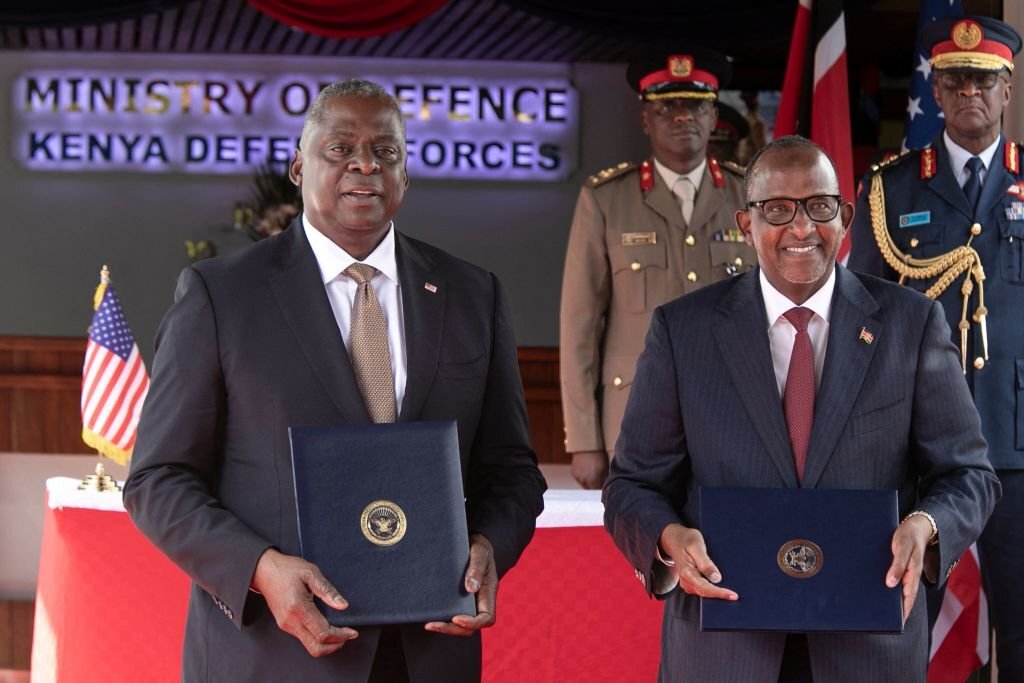Nairobi witnessed the signing of a defense pact between Kenya and the United States on Monday. This agreement is set to bolster Kenya with resources and support as it prepares to spearhead a multi-national peacekeeping force in Haiti, aiming to quell the rising tide of gang violence.
The Kenyan Defense Minister, Aden Duale, and the U.S. Defense Secretary, Lloyd Austin, formalized the agreement in the Kenyan capital. This pact outlines the defense collaboration between the two nations for the upcoming half-decade, especially as the battle against the al-Qaeda-affiliated al-Shabab group in East Africa escalates.
Austin expressed gratitude towards Kenya for its willingness to lead the Haiti peacekeeping initiative. He further assured that the U.S. administration is committed to collaborating with Congress to ensure the allocation of the $100 million they pledged during the U.N General Assembly.
Austin also emphasized the global community’s responsibility, suggesting that nations should emulate Kenya’s dedication to international security by offering “more personnel, equipment, support, training, and funding.”
Earlier in August, Kenya committed to dispatching 1,000 security personnel to Haiti. This initiative, which awaits the U.N Security Council’s official nod, has already garnered backing from both the U.N. and the U.S.
Highlighting Kenya’s extensive peacekeeping track record, Duale mentioned their contributions in Kosovo, Somalia, and Congo, asserting that Kenya stands prepared for the Haiti mission.
However, the proposed deployment has not been without its critics. Human rights advocates have voiced apprehensions, pointing to past instances of human rights violations during security operations within Kenya.
Additionally, some security experts have raised potential challenges regarding communication. They highlight the linguistic differences between Kenya, where English and Swahili are predominant, and Haiti, where French and Creole are the primary languages.
The Regional Battle Against al-Shabab
Addressing the ongoing efforts against al-Shabab, Austin shared insights from his discussions with the Somali president. Both parties acknowledged the “significant progress” made against the extremist group over the past year. Yet, Austin was candid in his assessment, noting that “progress is not always a straight line.”
In a related development, Somalia recently requested the U.N. to delay the withdrawal of 3,000 troops for three months. This pause in the second phase of troop reduction aims to provide Somali forces with ample time to consolidate. By the close of 2024, Somalia anticipates assuming its complete security duties.














